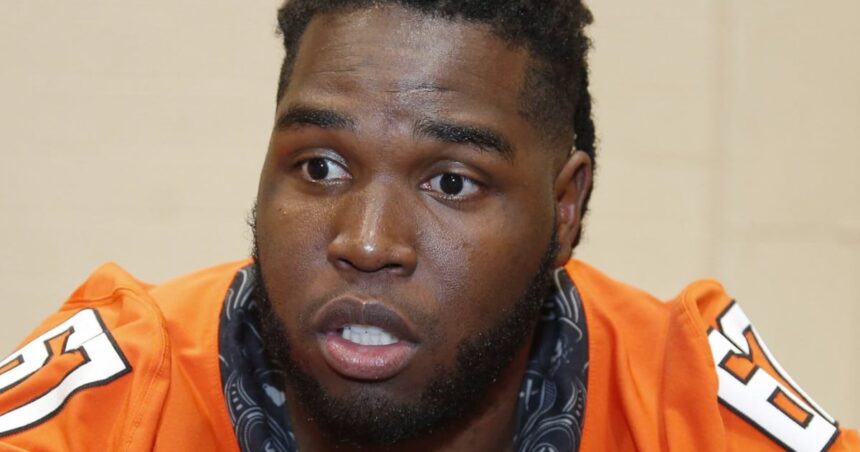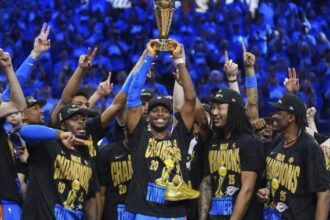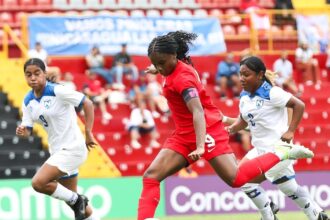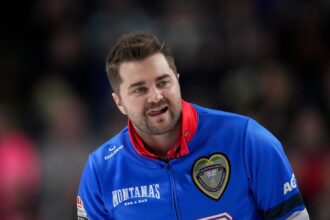In professional sports, homecomings often carry a weight of expectation and nostalgia that transcends the typical player acquisition. The Toronto Argonauts’ recent re-signing of offensive lineman Shane Richards embodies this narrative perfectly—a circular journey that speaks volumes about second chances in professional athletics and the evolution of player development in the Canadian Football League.
Richards, who made history as the first-overall selection in the 2019 CFL draft, returns to Toronto after a period that tested both his resolve and professional trajectory. His initial stint with the Double Blue wasn’t the seamless transition from collegiate star to professional standout that many had anticipated. The 6-foot-8, 325-pound lineman appeared in just 11 games across his first two seasons before being released—a humbling chapter for a player once considered the premier talent in his draft class.
“Player development isn’t linear,” explains veteran CFL scout Martin Dubois, who I spoke with about Richards’ return. “Especially for offensive linemen, who often require more technical refinement and physical maturation than skill position players. The expectations placed on first-overall picks can sometimes overshadow the reality of their developmental timeline.”
The Richards story touches on something deeply relevant in our contemporary sports culture—our collective impatience with the development process. In an era of instant highlights and rapid judgment, we’ve lost sight of how athletic careers unfold in real time, with setbacks often serving as crucial pivot points rather than definitive conclusions. His journey mirrors countless stories across professional sports where initial struggles belie future contributions.
After departing Toronto, Richards took the unconventional route of signing with the Saskatchewan Roughriders’ practice roster—a move that speaks to his determination to refine his craft away from the spotlight that had once shone so brightly on him. This period of recalibration appears to have served its purpose, creating an opportunity for the Argonauts to reacquire a player they once valued above all others in his draft class, but now with the benefit of additional seasoning and perspective.
The Argonauts’ front office deserves recognition for their willingness to revisit this relationship. In professional sports, where ego and optics often influence decision-making, there’s something refreshingly pragmatic about acknowledging that sometimes timing matters as much as talent. As we’ve covered extensively in our CO24 Sports analysis, organizations that display flexibility in their evaluation processes often reap unexpected rewards.
For Toronto, this acquisition represents low-risk, high-potential value. The offensive line remains football’s foundation—the unglamorous but essential engine of any successful offense. Richards returns with a physique and athletic profile that remains rare even at the professional level. His massive frame and reach, combined with improved technical understanding, could transform him from draft disappointment to key contributor.
The psychological dimension of this return cannot be overlooked. Richards re-enters a locker room carrying both the weight of past expectations and the advantage of hard-earned perspective. “There’s often a particular hunger in players who’ve experienced release and fought their way back,” notes sports psychologist Dr. Amelia Harrigan. “They understand the professional game’s precariousness in ways that continuously successful athletes might not.”
For fans of Canadian football, Richards’ return offers a compelling subplot to the upcoming season. Can the former first-overall selection author a second chapter more impressive than his first? The narrative contains elements that resonate far beyond sports—redemption, growth, humility, and persistence—themes that connect to our own professional journeys and personal challenges.
As we continue to track this developing story for our CO24 Culture section, Richards’ reintegration with the Argonauts serves as a reminder that in sports, as in life, timelines rarely unfold as neatly as we expect. Sometimes the most interesting stories emerge not from instant success but from the complicated middle—where struggle meets opportunity and second chances materialize when least expected.
Will Richards finally fulfill the potential that made him the first name called in 2019? The answer will unfold in the trenches of CFL battlefields in the coming months, but his return already offers a compelling reminder that in professional sports, the final chapter is rarely written after the first setback.
























